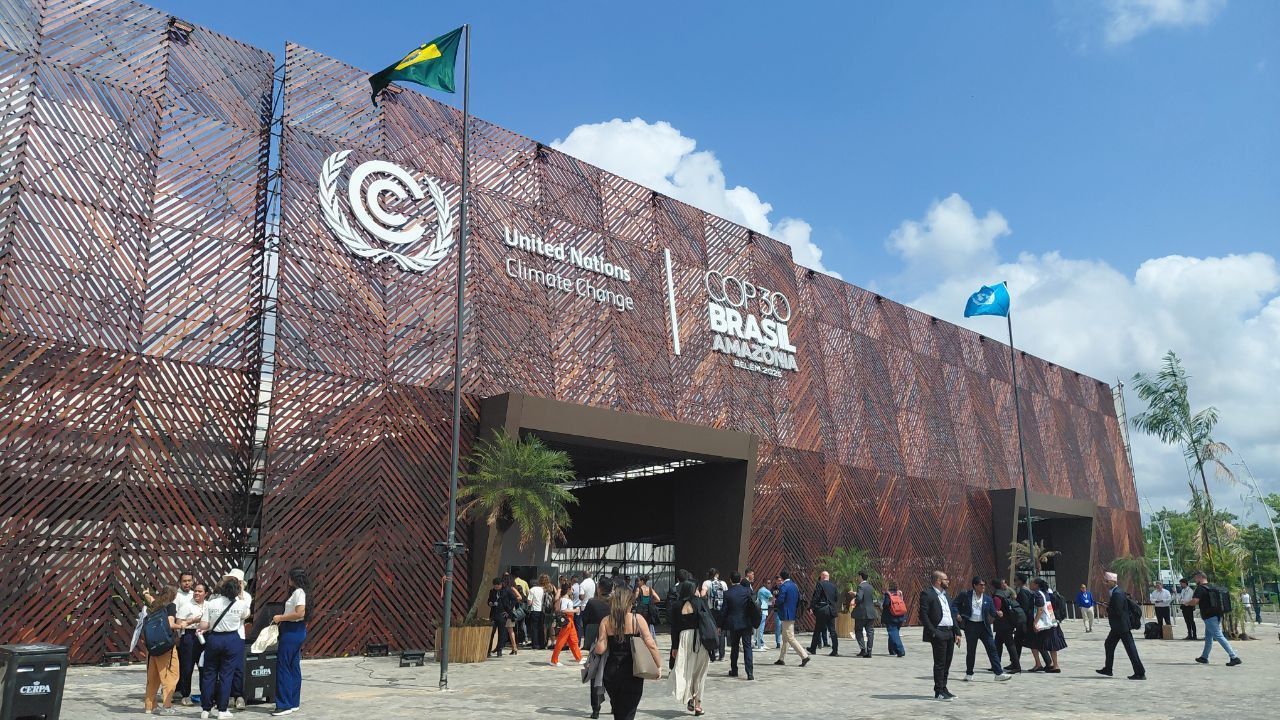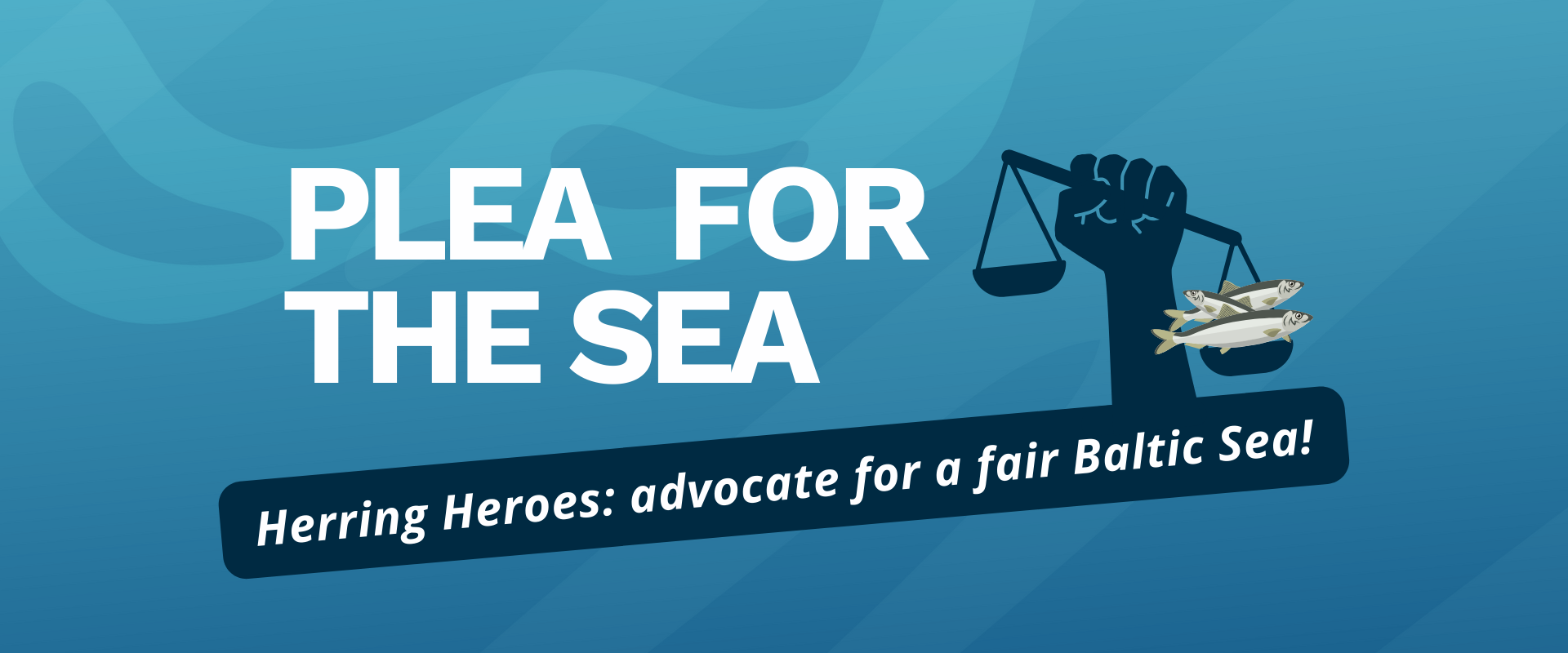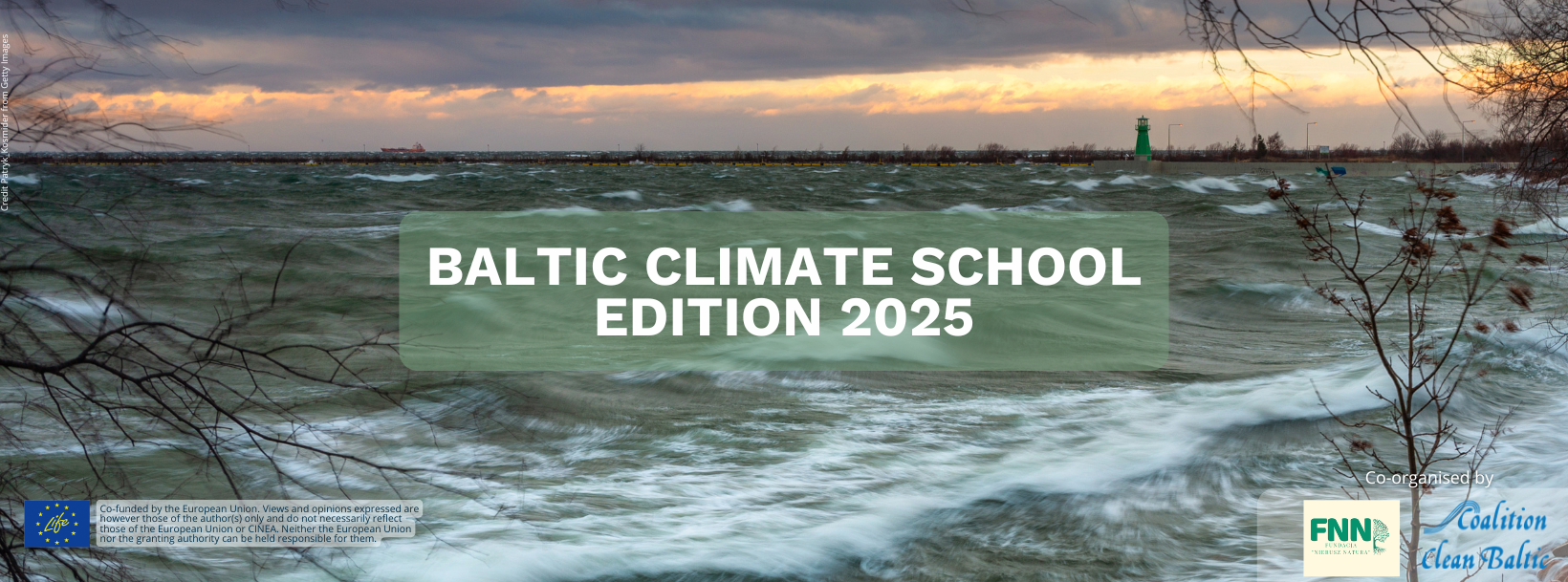For the protection of the Baltic Sea environment
The main goal of CCB is to promote the protection and improvement of the environment and natural resources of the Baltic Sea region for present and future generations.
CCB's Member Organizations
CCB unites Member and Observer organizations, as well as partners and individual experts in all countries of the Baltic Sea Region.
Combined, the CCB member organizations have almost 1 500 000 members in all countries surrounding the Baltic Sea.
News

In 2022, amid the devastation caused by Russia’s full-scale invasion of Ukraine, a small but meaningful crowdfunding initiative - #ASeedForReblooming - was launched to support landscape architect Nina Radchenko . Today, that initiative has evolved into a powerful contribution to urban sustainability and community resilience in Lviv.

The EU Fisheries Council have agreed to a roll-over of current eel fishing closures in EU waters to protect the 2026/2027 eel migrations. Regrettably the well-intentioned provision now contains so many derogations that the measure is not effective. The ban on recreational eel fishing in EU waters remain. In the Mediterranean region, measures apply in all waters, including freshwater, in line with the GFCM Recommendation [1] on eel.

In Belém, in the heart of the Amazon, the 2025 UN Climate Change Conference COP30 immediately set the bar high. In his opening speech, Brazilian President Lula da Silva stressed that climate change is no longer a "threat to the future", but a tragedy that the world is already experiencing here and now, and called on countries to accelerate actions rather than limit themselves to promises. However, as is often the case in COP meetings, the political reality turned out to be more complicated than ambitions. Negotiations were difficult: the countries could not agree on a clear and binding plan to phase out fossil fuels. It is important to note that the Global Action Plan has provided a platform for discussing the development of a roadmap for phasing out fossil fuels, the main driver of climate change. At the same time, COP30 has brought tangible progress in other areas: the countries agreed to triple the amount of adaptation funding for developing countries by 2035, strengthened the forest and ocean agenda, and expanded the range of practical initiatives under the Action Agenda . COP30 consolidated the trend: from "water at the center of the climate crisis" to a holistic ocean agenda closely related to energy, food, biodiversity and sustainable coastal development. From the COP29 Water Declaration to the COP30 Enhanced Ocean Water Program At COP29 in Baku, the Declaration on Water for Climate Action was adopted , with the aim to applying comprehensive approaches to combating the causes and consequences of climate change for water basins, emphasizing also the need to integrate water-related mitigation and adaptation measures into national climate policies, including Nationally Determined Contributions (NDCs) and National Adaptation Plans (NAPs). COP30 did not reverse this logic, but expanded it towards the ocean and coasts. Both processes "aquatic" and "oceanic" are moving in the same direction: integration of water, coasts and ocean into the climate plans of countries; development of nature-based solutions; strengthening transboundary management of water and marine systems; recognizing adaptation as an equal part of climate policy, rather than an "adjunct" to emissions reduction. Task Force on Oceans and the Blue NDC Challenge The international Task Force on Oceans , led by Brazil and France, was officially presented at the high-level ministerial meeting "From Ambition to Implementation: Delivering on Ocean Commitments" on 18 November, integrating oceans into a global mechanism to accelerate the incorporation of marine solutions into national climate plans. The Blue Nationally Determined Contributions (NDC) Challenge encourages countries to set ocean protection targets when updating their NDCs. The goal is to transition the Blue NDC Challenge into an Implementation Task Force. Members of the Blue NDC Challenge, currently 17 countries, can adopt a broad set of actions aimed at the protection and sustainable use of the oceans.These measures include the sustainable management, conservation, and restoration of coastal and marine ecosystems, supported by tools such as marine spatial planning, integrated coastal zone management, and climate-aligned marine protected areas. Countries are also encouraged to support sustainable and climate-resilient fishing and aquaculture, ensuring ocean health and long-term food security. B razil has set a clear example: its updated NDC includes a separate chapter on the ocean and coastal zones. For the first time, the national climate plan (Plano Clima) until 2035 includes a thematic adaptation plan for these areas. Priorities include the completion of national Maritime Spatial Planning (MSP) by 2030 and major programs for the conservation and restoration of mangroves and coral reefs (ProManguezal, ProCoral).

Leading scientists, consumer advocates and policymakers gathered on November, 18th in Brussels for the conference "From Evidence to Policy: Toward a Tox free Living Environment" . They warned that exposure to Endocrine Disrupting Chemicals in homes and consumer products represents a silent but severe public health and economic crisis. New findings presented to over 65 participants by the EU Baltic Sea Interreg project NonHazCity3 , LIFE ChemBee and the ToxFree LIFE for All projects as well as revealed widespread contamination of European households by complex chemical mixtures of hormone system disrupting substances (so called endocrine disrupters – EDCs) that contribute to chronic disease and impose enormous health costs. According to the key note speaker Dr. Aleksandra Rutkowska, the home environment is a significant source of exposure to EDCs through indoor air, dust and daily contact with common products. Current research links such exposure to a shocking amount of lifestyle diseases including 22 cancer outcomes, 18 metabolic disorder outcomes and 17 cardiovascular disease outcomes. Scientists also stressed that the crisis spans generations. EDCs trigger epigenetic changes that not only affect today’s population but also future children and even grandchildren. Other effects include reproduction disorders. Over the last decade, 150 million babies were born preterm, and evidence shows that reducing the use of plastics by half could cut the risk of preterm birth by half as well.


